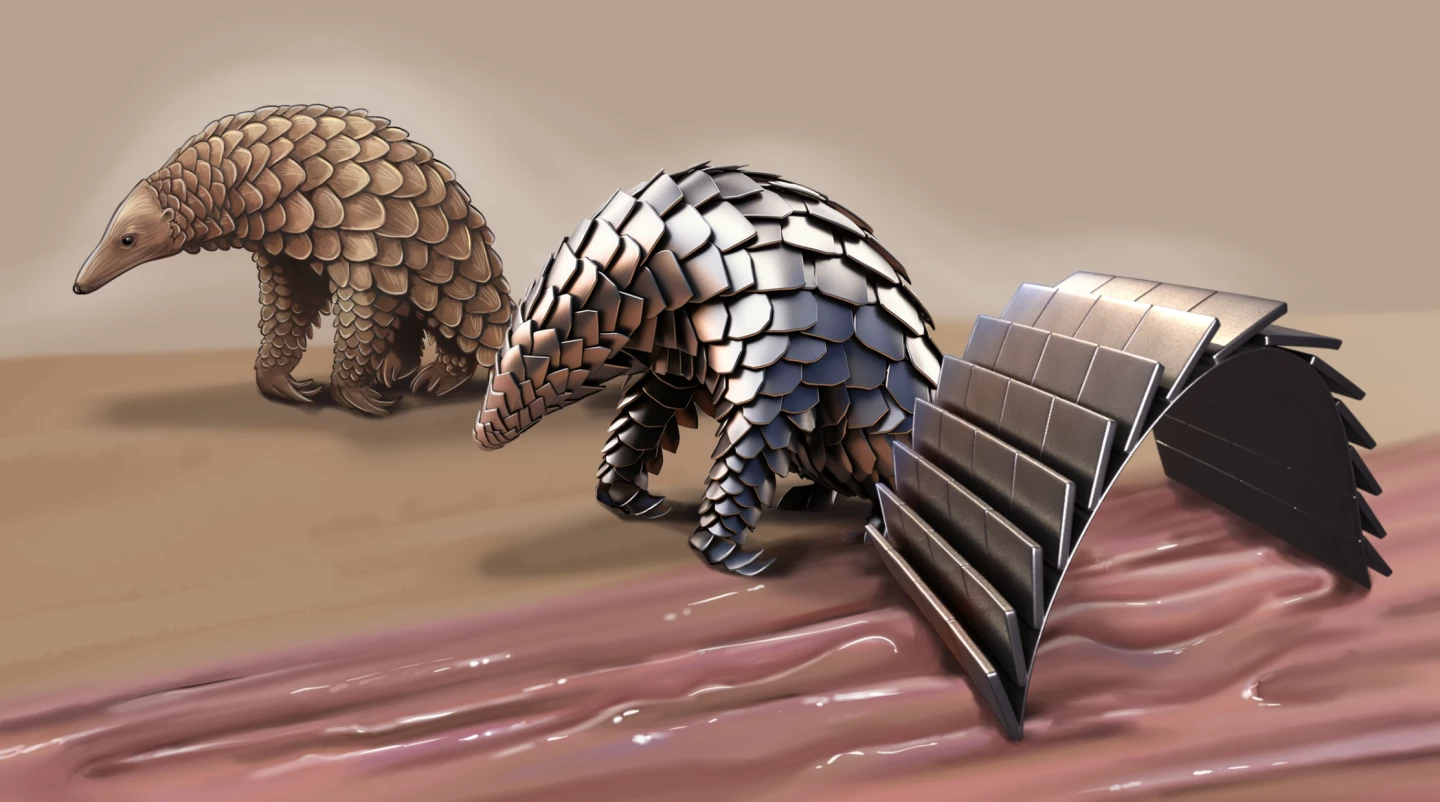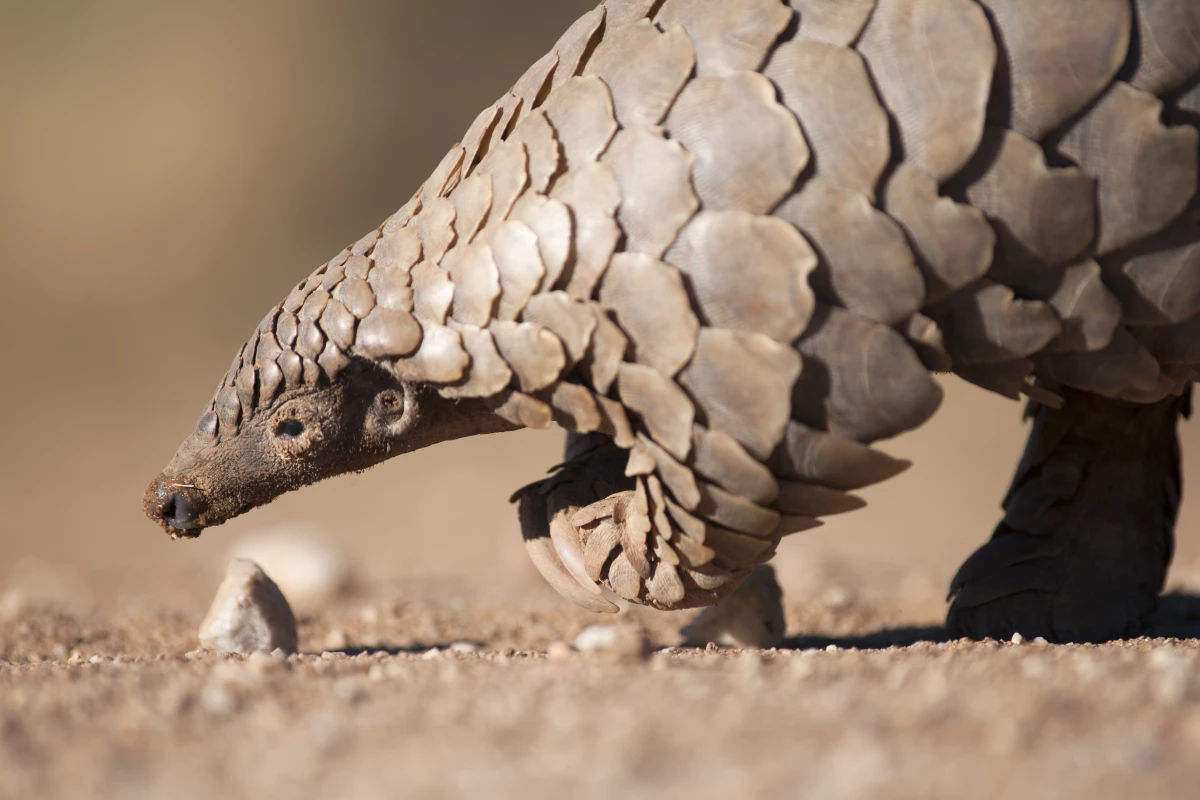In the latest biotechnology that takes its cue from the wonders of the natural world, a tiny soft, flexible metal ‘robot’ can curl up like a pangolin to effectively navigate the internal human body.
Scientists from the Max Planck Institute for Intelligent Systems in Stuttgart have looked to the only scaled mammal for their design, inspired by the animal’s ability to move fluidly with its layers of interlocking keratin scales and curl itself up into a ball when necessary.
Led by researcher Metin Sitti, the team designed a millirobot that’s 2 cm (0.8 in) long and 1 cm (0.4 in) wide, featuring overlapping scales that can move, roll and heat on demand. It has a soft layer of polymer studded with magnetic particles, and a hard top layer featuring overlapping ‘scales’ made of aluminum.

When the robot is exposed to a low-frequency magnetic field, it can be manipulated to roll up and move around by the researchers. When rolled up, the device can transport particles such as medicine to a targeted spot in the body.
Then, when exposed to a high-frequency magnetic field, it can heat to more than 70 °C (158 °F). At this temperature, it can be used to treat internal bleeds, remove tumor tissue and treat thrombosis.

While it’s not the first time scientists have turned to nature for mini robotics, with developments such as this caterpillar-inspired device and one modeled on a lamprey. But what makes this one special is that untethered robotics that are made of hard elements but can still move freely are rare and hold huge promise for tricky internal therapies and procedures.
In lab tests, the pangolin-like device was able to travel across soft tissue without damaging it, and then stem the flow of blood by covering a bleed and being heated. You can see this, among other tests, in the video compiled below.
The study was published in the journal Nature Communications.








